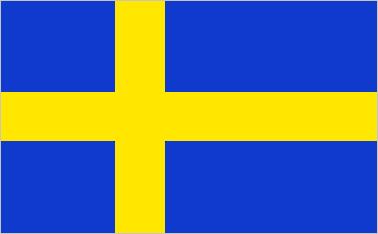Swedish is not the easiest language to learn. The grammar is totally different from english. When I try to translate directly from english to swedish, it is always wrong. I’ve been struggling with some of the placements of verbs and whatnot. It’s to be expected when learning a new language. I know it will come with time and I’ll make tons of mistakes, but what I’ve found more interesting is all the strange sounds that Swedes tend to make during conversations. It is the most interesting thing to listen to on the train or just people around me. Even Daniel does this without knowing. They are constantly making filler sounds as if they must fill in every silent space. Sometimes it’s an “ah” or “mmm”. It could be multiple “mmm mmm” or even just an intake of air as a confirmation. It’s almost unnerving to hear because you think they are gasping for air, but really they are just agreeing.
Let me explain. I’ve learned that Swedes use a lot of confirmation words to either say yes (ja) or no (nej). Swedes feel it is rude to just come out and say nej, so they will say “nja” which is short for NejJa, (no yes). The opposite of “nja” is “tja” which is positive and more of a “yes” response. These types of words are used in daily conversation either with a positive or negative connotation. For example, you can stay something interesting and someone will respond with “Jaha” (normal positive response), “Jaså” (if they are surprised good or bad), “JaJa” (yes yes), “Joho” (when correcting someone), “Nähä” (negative response) or “Oj” (surprised). These are not real words, more like expressions people use, which for a person that isn’t used to hearing this…it can be quite distracting. It’s almost like you can’t finish your thought because they are already answering to what you are saying.
Another interesting word that is overused is tack, which means “thanks”. Sometimes you will hear people using it once, “tack” or you could hear it used twice “tack tack”. They both mean the same thing, but it can also be used at the end of a sentence and then “tack” becomes “please”. For example, when ordering a cup of coffee you would say, “En kopp kaffe, tack”. Then when you get your cup of coffee you say tack again! A normal drink order can have several tacks involved. It’s funny and interesting learning a new language. Let’s just hope I catch on faster so I can start developing some of these habits! LOL!

